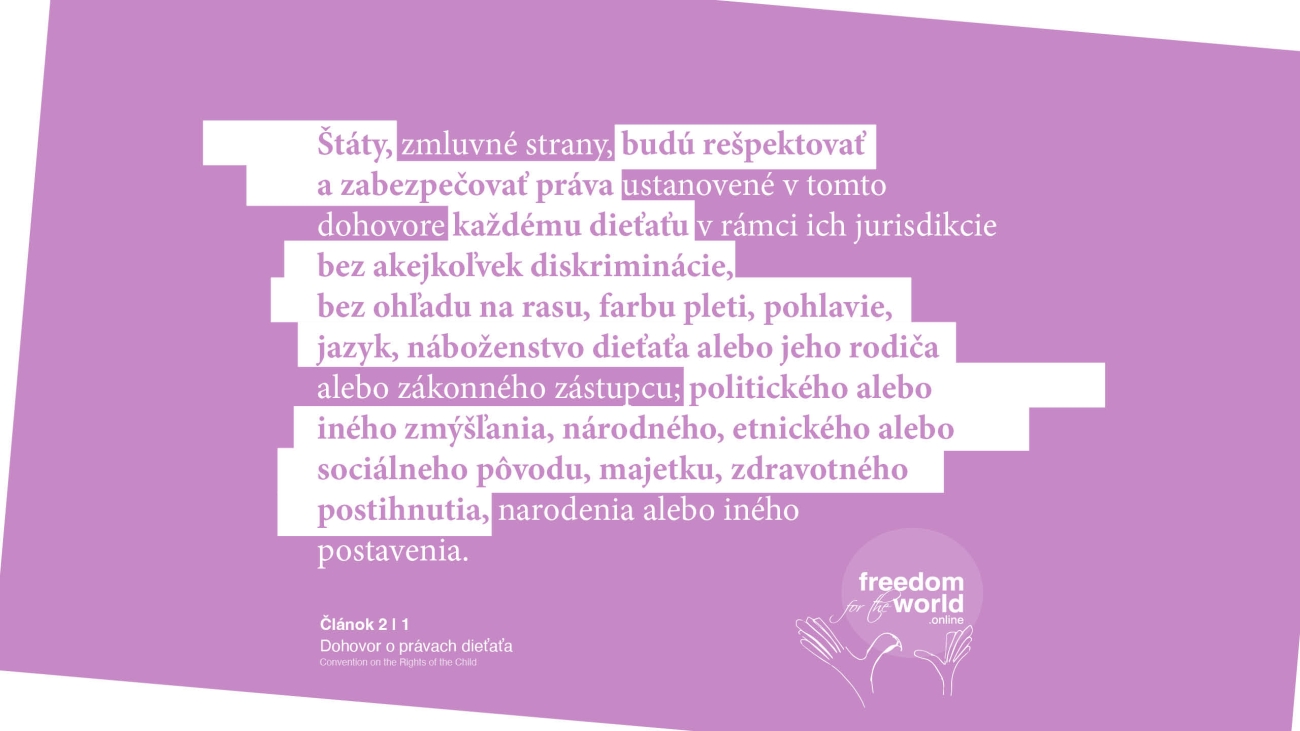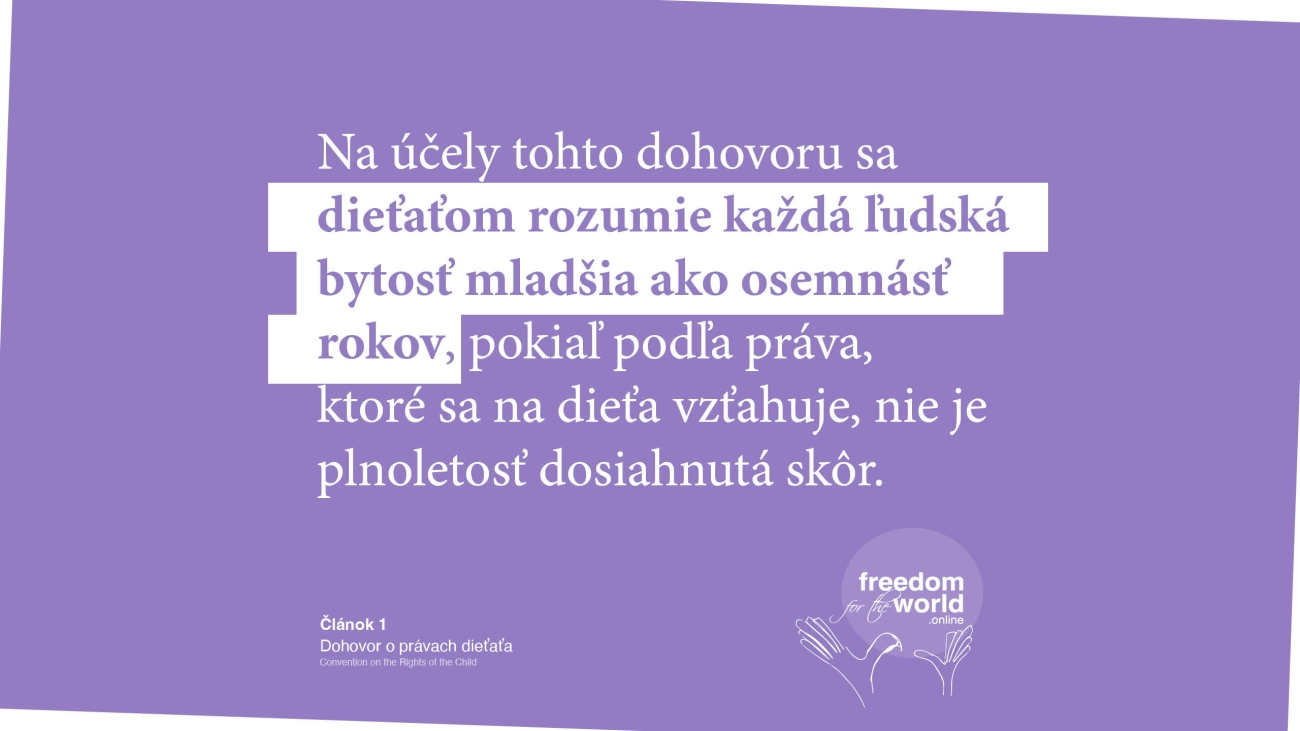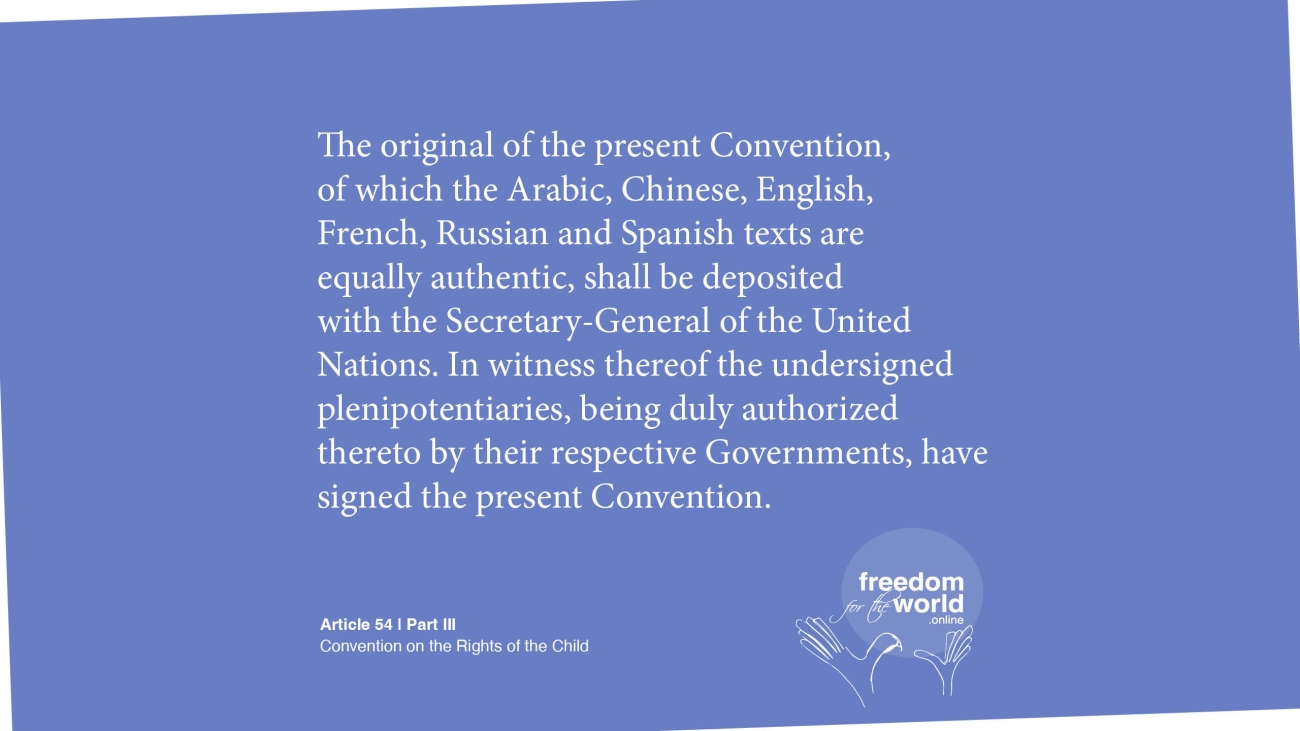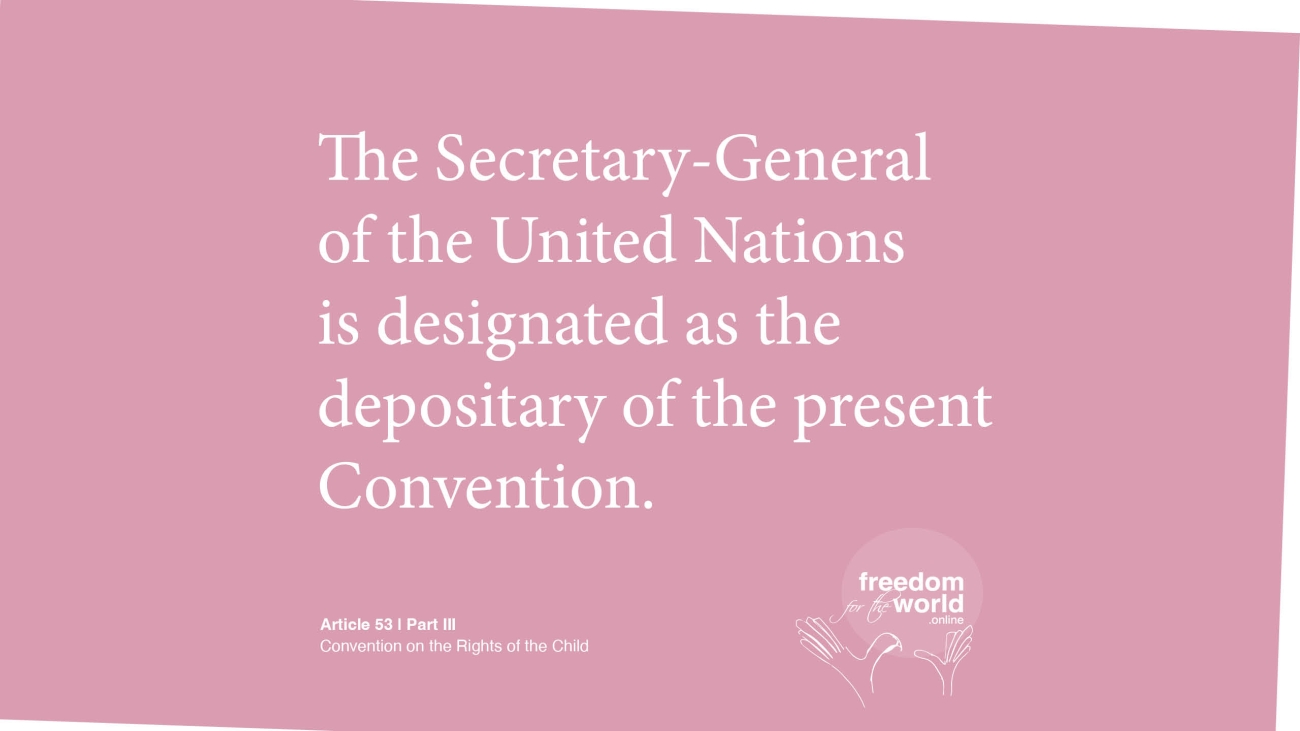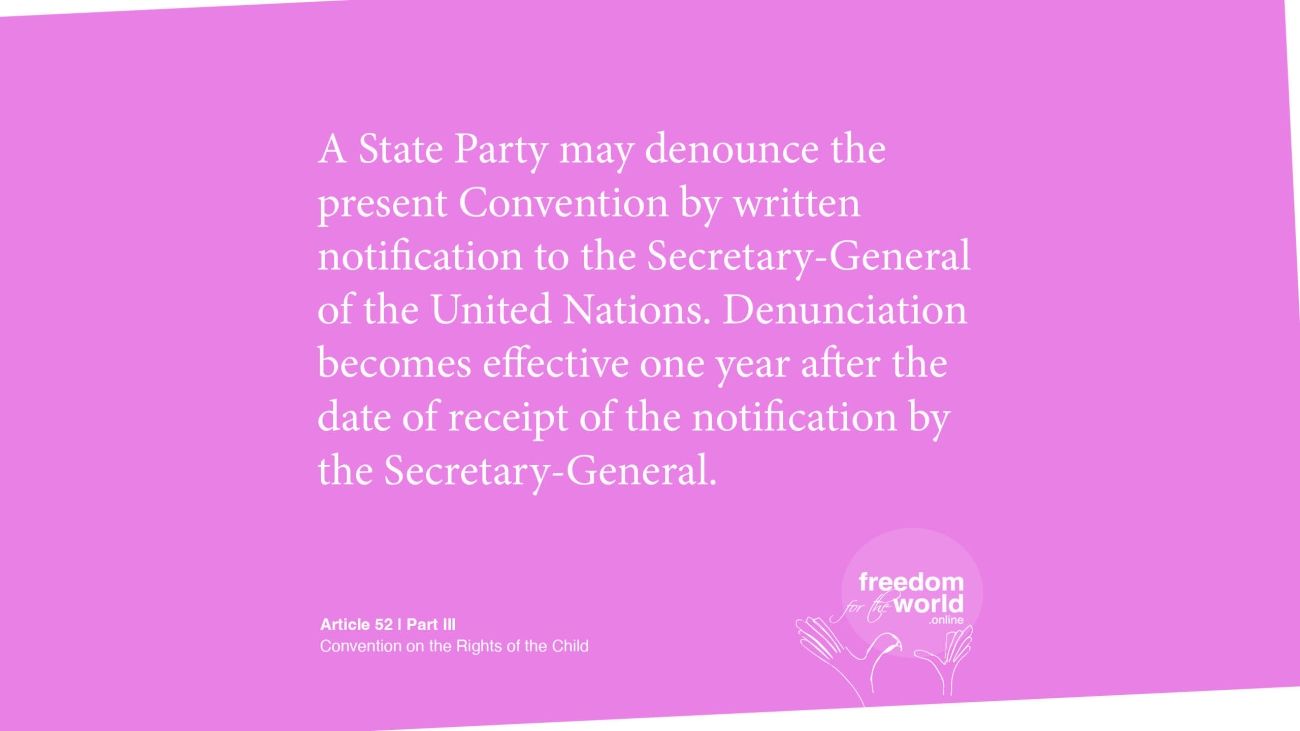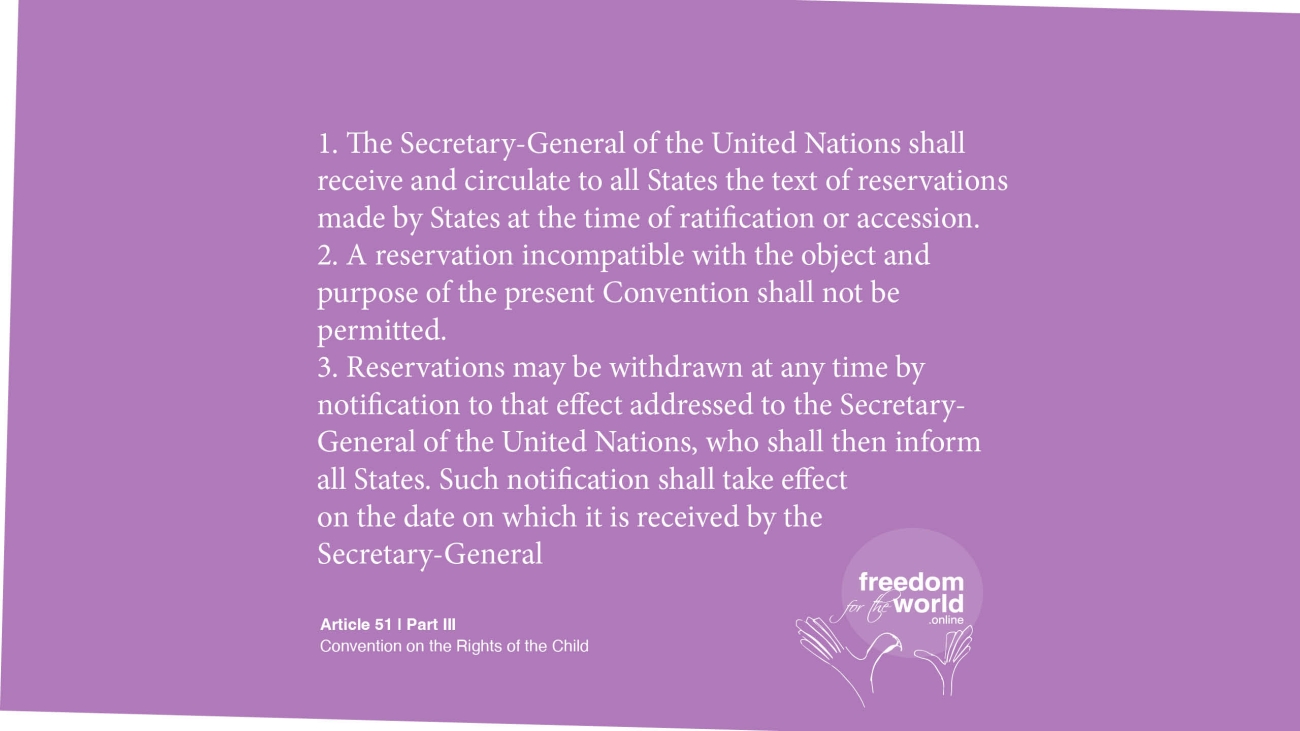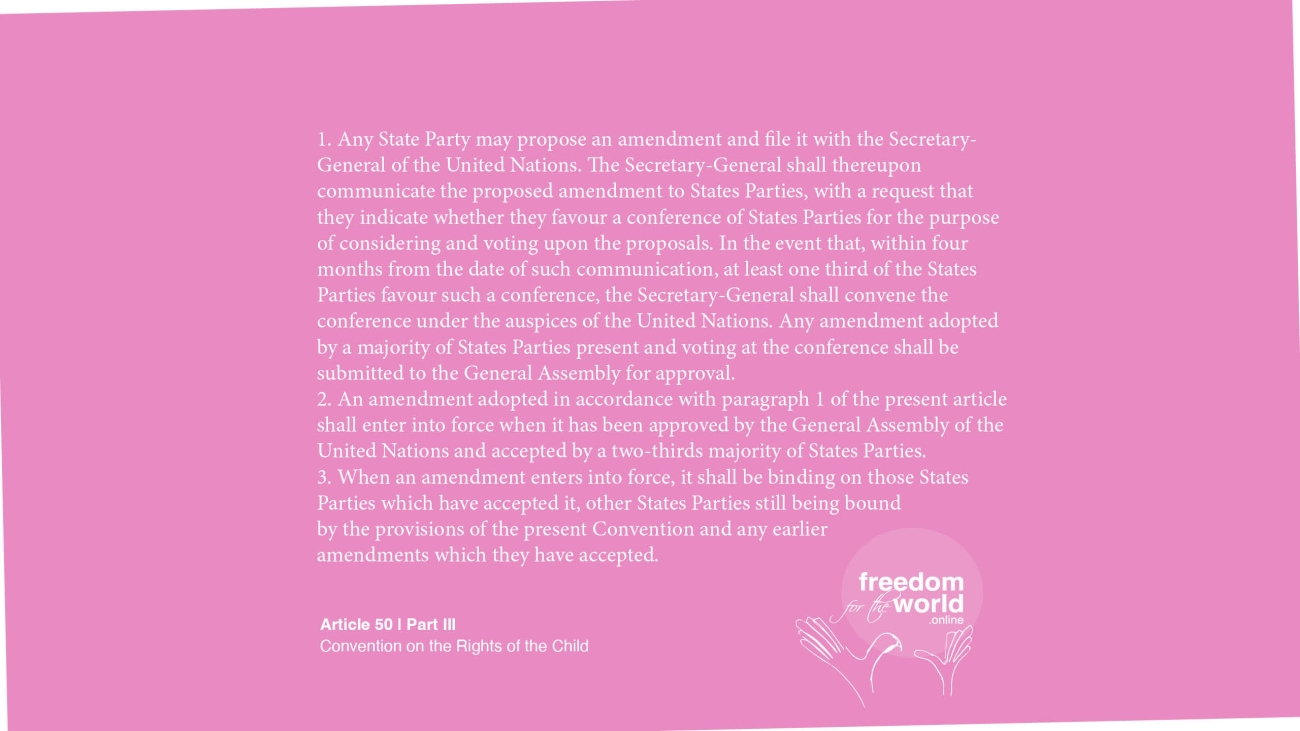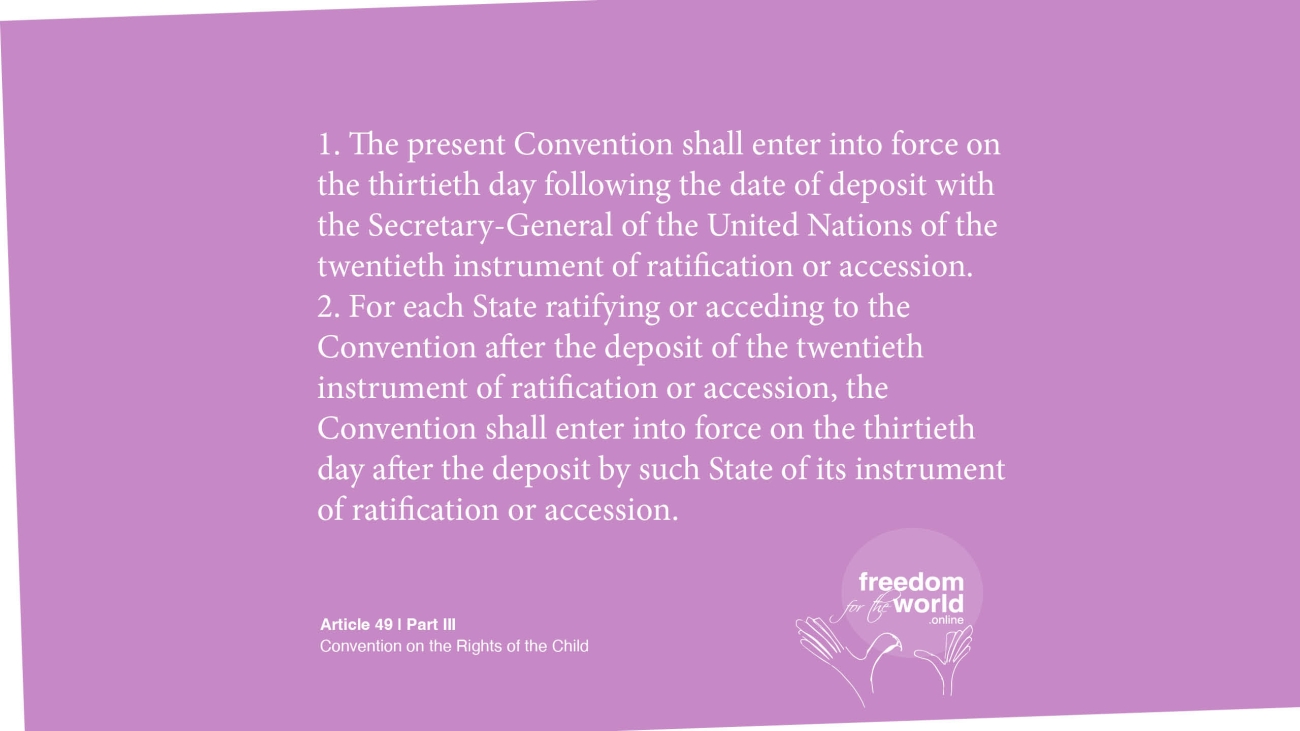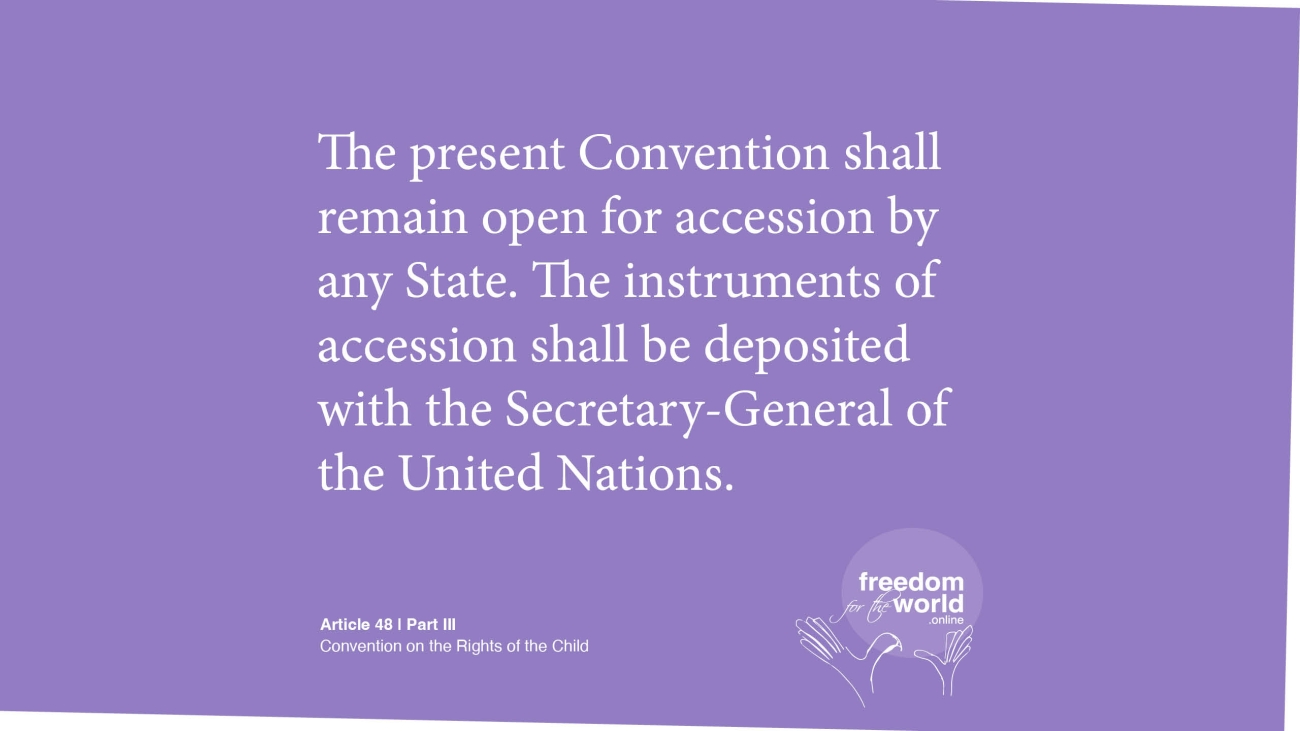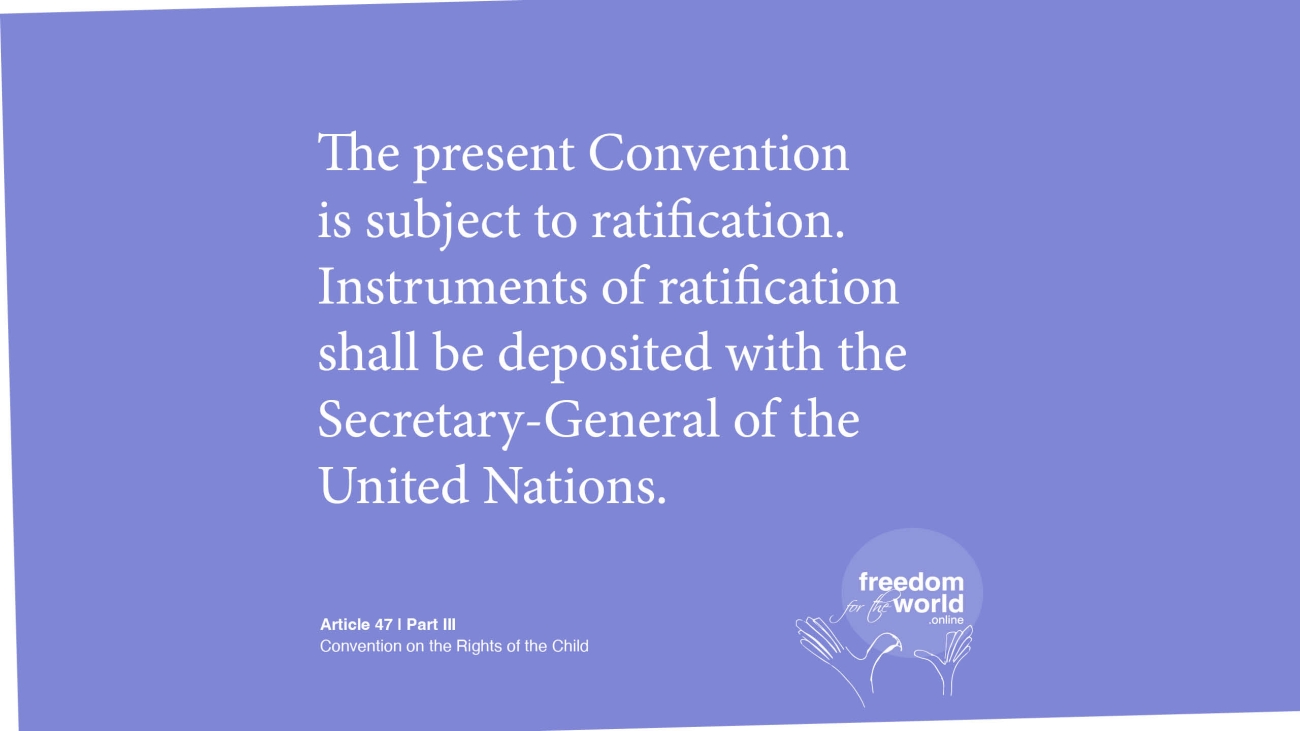1. Any State Party may propose an amendment and file it with the Secretary-General of the United Nations. The Secretary-General shall thereupon communicate the proposed amendment to States Parties, with a request that they indicate whether they favour a conference of States Parties for the purpose of considering and voting upon the proposals. In the event that, within four months from the date of such communication, at least one third of the States Parties favour such a conference, the Secretary-General shall convene the conference under the auspices of the United Nations. Any amendment adopted by a majority of States Parties present and voting at the conference shall be submitted to the General Assembly for approval.
2. An amendment adopted in accordance with paragraph 1 of the present article shall enter into force when it has been approved by the General Assembly of the United Nations and accepted by a two-thirds majority of States Parties.
3. When an amendment enters into force, it shall be binding on those States Parties which have accepted it, other States Parties still being bound by the provisions of the present Convention and any earlier amendments which they have accepted.
Convention on the Rights of the Child | PART III | Article 50
